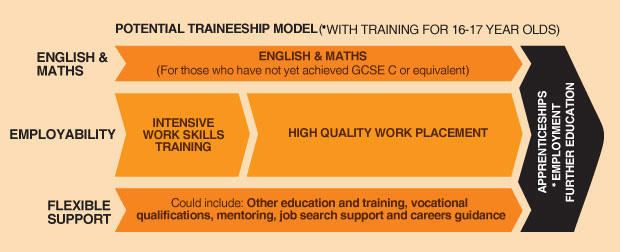The Skills Funding Agency is tearing up an £800,000 training contract with a Hertfordshire-based provider amid claim the firm owes at least one subcontractor nearly £18,000.
Train 4 Work Ltd, which was allocated the contract under the agency’s Adult Skills Budget for 2012/13, was “formally notified” of the move more than two months ago.
The reason behind the termination of the contract remains unclear as FE Week was unable to contact the firm and the agency failed to say why it was taking action.
Due to operational issues within their organisation Train 4 Work was unable to pass on the agreed level of funding to Integer at the time the training programmes took place, but it has since made attempts to settle its debts.
However, Train 4 Work is understood to have suffered “operational issues,” while one former subcontractor said it was looking at having to write off the firm’s debt.
Mark Mayhew is listed on LinkedIn as the firm’s managing director — a position he has held since December 2010, it says. However, FE Week was unable to contact him.
The UK Register of Training Providers lists Peter Wilson as programme manager. He told FE Week he left the firm in June last year, but declined to comment further.
A joint statement from the agency and the National Apprenticeship Service (NAS) said: “The Skills Funding Agency took the decision to give three months’ notice to terminate the contract between the chief executive of skills funding and Train 4 Work Ltd.
“The provider was formally notified on November 1, 2012, and accordingly the contract will terminate on January 31, 2013. We do not comment on details of contractual arrangements between the agency and a provider.”
It added: “Our priority is to ensure minimal disruption to apprentices, learners and employers.
“The agency and NAS are working with Train 4 Work Ltd to ensure that all learners and apprentices are transferred to an alternative provider.”
Train 4 Work, formed in 2007, was last inspected by Ofsted in October 2010 at which point it had 312 Train to Gain learners and got a satisfactory grading.
An inspection the previous year resulted in an inadequate grading and saw the agency’s predecessor, the Learning and Skills Council, withdrew funding for new learners.
Improvements registered during a monitoring visit in January 2010 saw funding restored.
During its most recent inspection, Train 4 Work operated with three subcontractors in Oxfordshire-based security experts Skillsbank, Cornwall-based spectator safety firm Integer Training and the health and social care-related Three Counties Training, in Worcestershire.
A spokesperson for Integer Training said: “We sub contracted from Train 4 Work in 2010/11.
“Due to operational issues within their organisation Train 4 Work was unable to pass on the agreed level of funding to Integer at the time the training programmes took place, but it has since made attempts to settle its debts.
“The outstanding balance of £17,776.45 may well have to be written off.”
A Skillsbank spokesperson said it dealt with Train 4 Work for two years, ending in 2010 but declined to comment further, and FE Week could not contact Three Counties
Training.
The joint statement from the agency and NAS added: “We are contacting all affected apprentices, learners and employers to inform them of the situation and offer support and commitment as required.
“Any concerned employers, apprentices and learners can contact the agency at sfaemployerenquiries@skillsfundingagency.bis.gov.uk”

